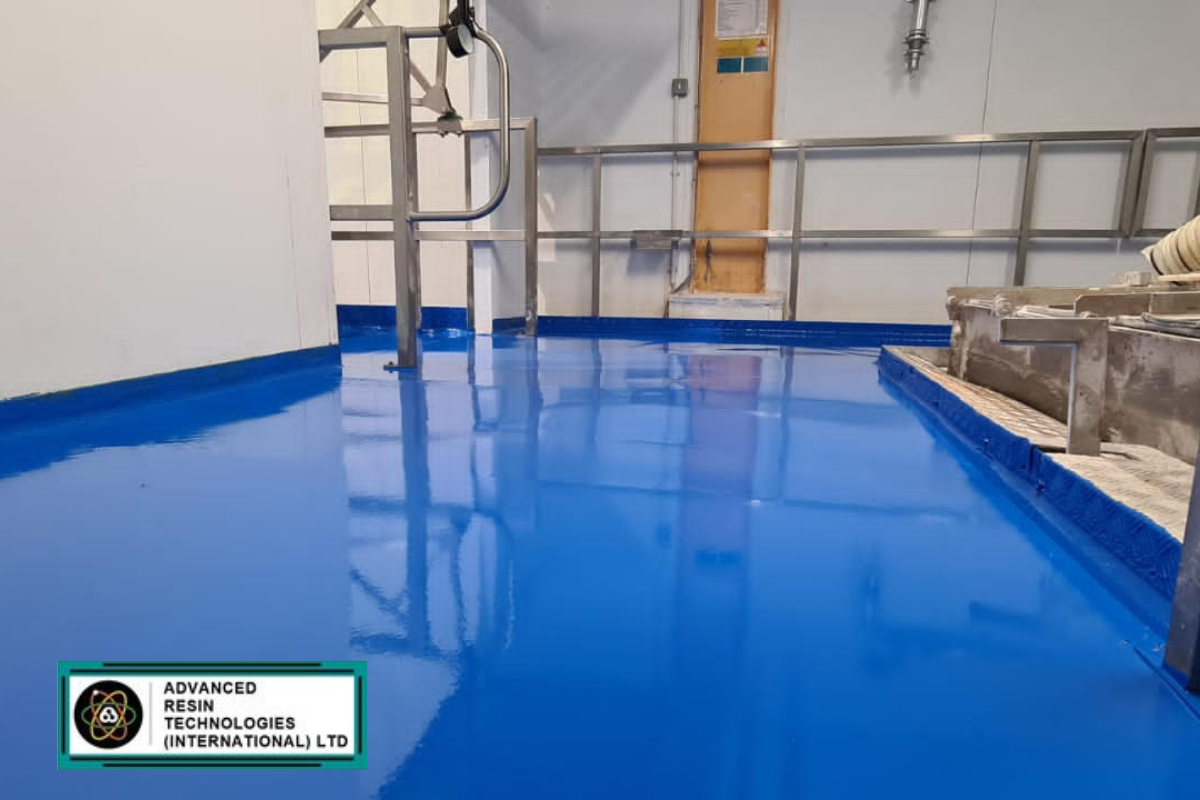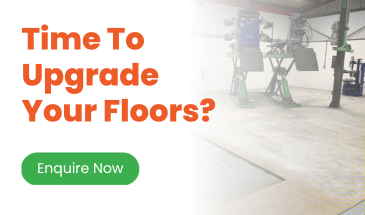Maintaining a hygienic environment in a food production facility is of the utmost importance. The Food Standards Agency requires all UK food businesses to ensure that hygiene levels are sustained at a high level across all production and storage areas – including warehouses, factories, storerooms, laboratories, commercial kitchens, and so on.
One key aspect of maintaining good hygiene is ensuring that the flooring in food production areas is kept clean and safe. This is where industrial epoxy and resin floor coatings can improve safety and quality standards. In this article, we’ll explore why the food industry and epoxy resin flooring are a match made in heaven.
1. Improved Hygiene And Cleanliness
The food industry has stringent regulations surrounding hygiene and cleanliness and meeting them demands a flooring solution that can stand up to these high standards. Epoxy resin flooring is a seamless and non-porous surface, which is important for hygiene because it means it does not have any cracks or crevices where bacteria can grow. This makes the surface easy to clean and sterilise, reducing the risk of cross-contamination between food products. With epoxy resin flooring, you also don’t need to worry about food particles, by-products, and liquids seeping into the floor – as you do with porous surfaces such as concrete, which could cause odours and stains.
2. Chemical Resistance
Commercial food-grade epoxy and resin floor coatings are incredibly resistant to production and cleaning chemicals, including acid, alkalis, and solvents, and can withstand harsh substances without corroding or staining. In some cases, these chemicals can damage the flooring surface and cause it to deteriorate quickly, creating an ongoing maintenance issue and source of expense. Investing in an epoxy resin flooring system will reduce the costs associated with wear and tear and increase the lifetime value of your flooring.
3. Enhanced Slip Resistance
Food production facilities are often wet and slippery, which poses a safety hazard to employees. Slip and fall accidents can cause serious injuries that could disrupt production and increase operational downtime – on top of the pain and distress incurred by the staff! Epoxy resin flooring systems can be customised with slip-resistant additives, creating a less risky work environment for employees. The anti-slip coating provides better traction for foot traffic, trolleys, and vehicles, providing a safer surface even when wet.
4. Temperature Resilience
Food production and storage environments are frequently subject to extreme temperature fluctuations, which can cause various flooring solutions to expand and contract, resulting in cracks, pits, and other damage. Epoxy resin flooring is a resilient solution that can withstand significant temperature changes, from hot and humid kitchens and curing areas to sub-zero walk-in freezers. Food-grade epoxy flooring won’t crack, even when exposed to extremes of hot and cold, ensuring the surface remains hygienic and durable.
5. Quick And Efficient Installation
Food manufacturing facilities often work to tight just-in-time delivery schedules, leaving little room for downtime. Installing a new flooring solution in a warehouse or factory is a significant undertaking and can be a major cause of disruption, leading to a loss in production. One of the major benefits of epoxy resin flooring is therefore its quick installation process, keeping downtime to a minimum and reducing the impact on the business.
Find Out More
Epoxy resin flooring and hygienic resin floor screeds are ideal flooring solutions for the food manufacturing sector, contributing to a safer and more productive working environment. To find out more, please get in touch with Advanced Resin Technologies (International) today.




